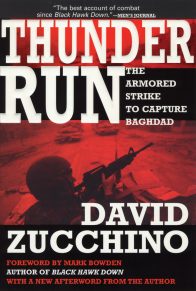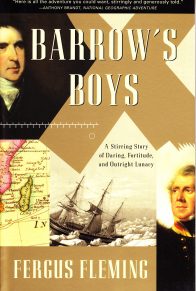Books
About The Book
In the mid-nineteenth century, the Amazon Valley remained a mystery to the outside world. Enormous and unspoiled, it lay rich with possibility. In 1850, the secretary of the U.S. Navy appointed Captain William Lewis Herndon to lead the first American expedition to explore this vast and foreboding region.
Herndon departed Lima, Peru, on May 20, 1851, and arrived at Para, Brazil, nearly a year later, traveling more than four thousand miles by foot, mule, canoe, and small boat. As ordered by Congress, he catalogued his scientific and commercial observations, but he filed his report as a narrative, recounting the beauty of the land and his encounters with natives and animals, which captured the imagination of nineteenth-century America. Herndon described his adventures with such insight, such compassion and wit, and such literary grace that the book quickly became an international best-seller.
One of the great American chronicles of exploration, Herndon’s account is a highly enjoyable read and an intimate portrait of an exotic land before the outside world rushed in.
Excerpt
Chapter I
INTRODUCTORY
United States ship Vandalia–Valparaiso–Santiago–Preparatory orders–Lima–Means of information–Conquests of the Incas in the Monta”a–First explorations of the Spaniards–Madame Godin
ATTACHED TO THE U.S. SHIP VANDALIA, of the Pacific squadron, lying at anchor in the harbor of Valparaiso, in the month of August, 1850, I received a communication from the Superintendent of the National Observatory, informing me that orders to explore the Valley of the Amazon would be sent by the next mail steamer.
The ship was then bound for the Sandwich Islands, but Captain Gardner, with that kindness which ever characterized his intercourse with his officers, did not hesitate to detach me from the ship, and to give me permission to await, at Valparaiso, the arrival of my instructions.
The officers expressed much flattering regret at my leaving the ship, and loaded me with little personal mementos–things that might be of use to me on my proposed journey.
On the sixth of August I unexpectedly saw, from the windows of the club-house at Valparaiso, the topsails of the ship mounting to the mastheads; I saw that she must needs make a stretch in-shore to clear the rocks that lie off the western point of the bay, and desirous to say farewell to my friends, I leaped into a shore-boat and shoved off, with the hope of reaching her before she went about. The oarsmen, influenced by the promise of a pair of dollars if they put me on board, bent to their oars with a will, and the light whale-boat seemed to fly; but just as I was clearing the outer line of merchantmen, the ship came sweeping up to the wind, and as she gracefully fell off on the other tack, her royals and courses were set; and bending to the steady northeast breeze, she darted out of the harbor at a rate that set pursuit at defiance. God’s blessing go with the beautiful ship, and the gallant gentlemen, her officers, who had been to me as brothers.
Owing to the death of President Taylor, and the consequent change in the Cabinet, my orders were delayed, and I spent several weeks in Valparaiso, and Santiago, the capital of Chili. This time, however, was not thrown away: My residence in these cities improved my knowledge of the Spanish language, and gave me information regarding the Bolivian tributaries of the Amazon which I probably could have got nowhere else.
The city of Santiago is situated in a lovely plain at the very foot of the cordillera. The snowy summits of this chain, painted in bold relief against the hard, gray sky of the morning, have a very singular and beautiful appearance; they seem cut from white marble, and within reach of the hand. It is almost impossible to give an idea of the transparency of the atmosphere at this place. I was never tired of watching, from a little observatory, the stars rising over these mountains. There was nothing of the faint and indistinct glimmer which stars generally present when rising from the ocean; but they burst forth in an instant of time, in the full blaze of their beauty, and seemed as if just created.
Chili, in arts and civilization, is far ahead of any other South American republic. There are many young men of native families, educated in the best manner in Europe, who would be ornaments to any society; and the manners of the ladies are marked by a simple, open, engaging cordiality that seems peculiar to Creoles. I do not know a more pleasant place of residence than Santiago, except for two causes: one, earthquakes, to the terrors of which no familiarity breeds indifference; the other, the readiness of the people to appeal to the bayonet for the settlement of political differences, or in the struggle for political power. These two causes shook the city and society to their foundations a few months after I left it.
On the twentieth of January, 1851, I received the following instructions from the Hon. William A. Graham, Secretary of the Navy:
NAVY DEPARTMENT, October 30, 1850.
SIR: Proceed to Lima, for the purpose of collecting from the monasteries, and other authentic sources that may be accessible to you, information concerning the headwaters of the Amazon and the regions of country drained by its Peruvian tributaries. You will then visit the monasteries of Bolivia for a like purpose, touching the Bolivian tributaries of that river, should it in your judgment be desirable.
The object of the department in assigning you to this service is with the view of directing you to explore the Valley of the Amazon, should the consent of Brazil therefore be obtained; and the information you are directed to obtain is such as would tend to assist and guide you in such exploration, should you be directed to make it.
As this service to which you are now assigned may probably involve the necessity of the occasional expenditure of a small amount on government account, you are furnished with a bill of credit for one thousand dollars, for which you will account to the proper office.
Also, enclosed you will find a letter of introduction to Messrs. Clay and McClung, charg’s d”affaires near the governments of Peru and Bolivia.
Respectfully, &c.,WILLIAM A. GRAHAM.
As I had obtained from my Santiago and Valparaiso friends all the information that I would be likely to get in the cities of Bolivia, I determined to proceed to Lima, and accordingly embarked on board the mail boat of the twenty-sixth.
My residence in Valparaiso had made new friends and established new ties, that I found painful to break; but this is the lot of the navy officer: Separated from his family for years, he is brought into the closest and most intimate association with his messmates, and forms ties which are made but to be broken, generally by many years of separation. Taken from these, he is thrown among strangers, and becomes dependent upon their kindness and hospitality for the only enjoyments that make his life endurable. Receiving these, his heart yearns towards the donors; and my Valparaiso friends will readily believe that I was sad enough when compelled to leave them.
I arrived in Lima on the sixth of February. This city has changed greatly since I was here twenty years ago. Though we had bullfights on the accession of the new president, yet the noble amphitheatre was not crowded as in old times with the “lite and fashion of Lima, but seemed abandoned to the vulgar. The ladies have given up their peculiar and most graceful national costume, the Saya y Manto, and it is now the mark of a ragged reputation. They dress in the French style, frequent the opera, and, instead of the Yerba de Paraguay, called matt”, of which they used a great quantity formerly, they now take tea. These are causes for regret, for one likes to see nationality preserved; but there is one cause for congratulation (especially on the part of sea-going men, who have sometimes suffered), the railroad between Lima and Callao has broken up the robbers.
But with these matters I have nothing to do. My first business at Lima was to establish relations with the accomplished and learned superintendent of the public library. This gentleman, who is an ecclesiastic and a member of the Senate, has so high a character for learning and honesty that, though a partisan politician and a member of the opposition to the new government, he preserves (a rare thing in Peru) the respect and confidence of all. He placed the books of the library at my disposal, and kindly selected for me those that would be of service.
The sources of information, however, were small and unsatisfactory. The military expeditions into the country to the eastward of the Andes left little or no reliable traces of their labors. The records of the exploration of the Jesuits were out of my reach, in the archives of Quito–at that time the head of the diocese, and the starting point of the missions into the interior–and nearly all that I could get at were some meagre accounts of the operations of the Franciscans.
Though the information obtained in Lima was not great, I still think that a slight historical sketch of the attempts to explore the Monta”a* of Peru, made since the conquest of that country by Pizarro, will not be uninteresting.
*Monta”a (pronounced Montanya) is the name given by the Peruvians to any wooded country, monte being the Spanish term for a thick and tangled forest. As there is no other wooded country in Peru except to the eastward of the Andes, the term applies only to the eastern slope, and the level country at the base of the mountains, stretching as far as the confines of Brazil.















